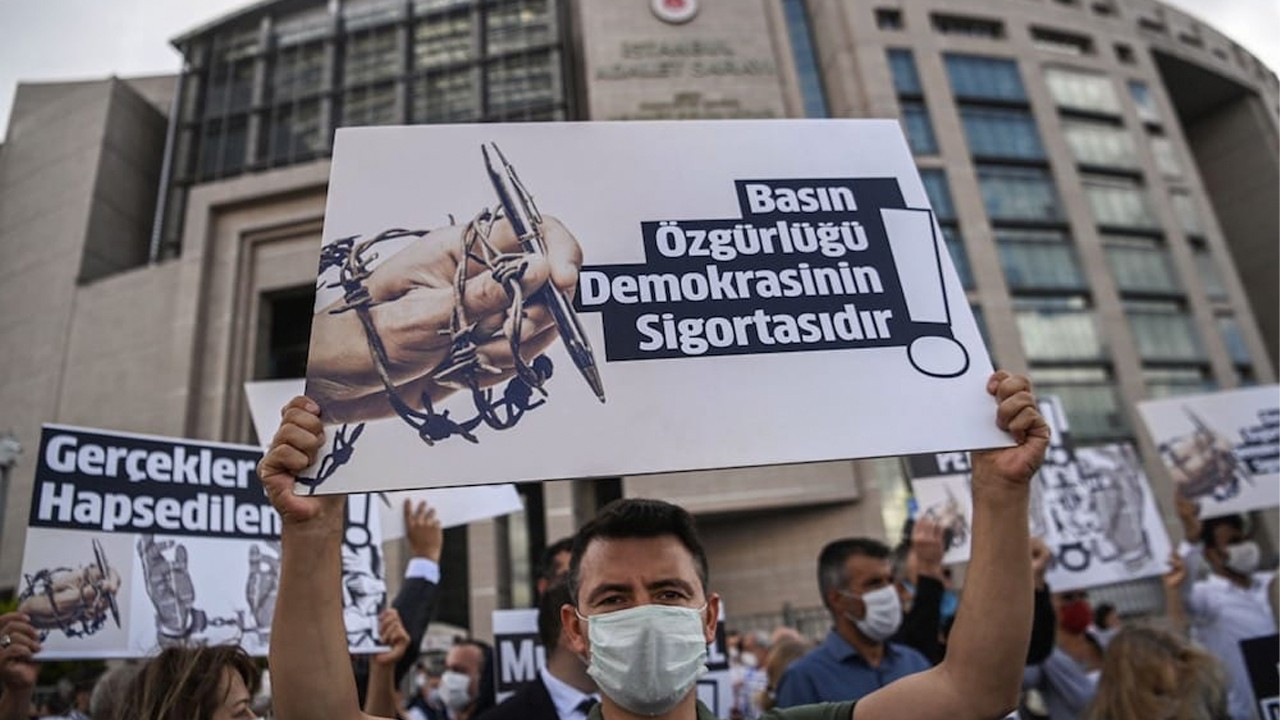The witch hunt to find foreign funds in Turkey
Last week there began a witch hunt by media outlets, politicians, and social media users across the political spectrum against journalists, including myself, supposedly receiving ‘foreign funds.’ This latest wave of shallow nationalist and isolationist sentiments reflect an ongoing trend in Turkey. There is still strong suspicion and resentment towards the West and Western institutions across the Turkish political spectrum.
Last week, all of a sudden, my YouTube comments section was filled with aggressive comments attacking me for supposedly receiving “foreign funds.” As is often the case with these coordinated attacks, it took me a while to figure out exactly what was going on, but then I realized it had to do with my comments on Afghan refugees.
Following the U.S. military pullout from Afghanistan and as the Taliban have been increasing control of the country, more Afghans are deciding to flee their home. Many young men are afraid they will be forced to join the Taliban, and the ones who have been working for the Afghan government are afraid they will be prosecuted and even killed. Afghan President Ashraf Ghani recently estimated that soon “around 10 million Afghans are going to be refugees.” Most of these refugees are or soon will be heading to Turkey. Journalists in the Turkish city of Van, on the border with Iran, have been taking videos of hundreds of Afghans walking through the mountains, crossing the Turkish border. The AKP government’s de facto open door policy has been continuing since the Syrian Civil War. Currently Turkey is home to around 4 million Syrian refugees and around 500,000 Afghans. The resentment towards refugees in Turkey has grown to the point where anyone even attempting to rationalize the migrant flow is viewed an enabler of these trends or a flat-out traitor and enemy. This twisted logic has been used against a number of independent media sources in the latest wave of nationalist propaganda.
Unlike in previous attacks, this time the insanities came from all sides of the political spectrum. The main opposition Republican People’s Party’s (CHP) leader Kemal Kılıçdaroğlu made a statement, saying that when CHP takes the power, 2.5 million Syrian migrants will be sent back home peacefully. He did not elaborate on the details of this plan, as is usually the case in these conversations regarding migrants, there was little attention to the rational of the proposals. Then, a nationalist-left website, Oda TV, out of nowhere shared a list of journalists and media outlets receiving support from ‘foreign funds.’ Oda TV shared the news as if it was breaking, despite that these outlets have been sharing such information regarding their funding on their websites already. Shortly after, the Communication Director of the Presidency and the grey eminence of the public discourse in Turkey, Fahrettin Altun, came out with a warning that Turkey would soon crackdown on foreign-funded media and prevent any further “fifth column activities under new guises.”
This story, which connected unlikely partners, sparked outrage on social media where not only pro-government social media trolls, but also pro-opposition users began attacking journalists on Twitter and YouTube. The core of the attacks was that these journalists were receiving funds from Western institutions and are being paid to spread the pro-migrant propaganda. The lynching logic was that, since the EU does not want any more Syrian or Afghan migrants, it is pushing for policies to keep such refugees in Turkey, thus they must be paying journalists to spread this propaganda. Some journalists including myself were immediately targeted and labeled as “refugee lovers, traitors, and EU mercenaries.”
One comment I received said: “We are against the AKP, but we don’t understand who you are, why should trust you? Where do you get your funds?” This was the nature of hundreds of comments I received. I understand some of these comments were generated in an organized way, but many were expressing a genuine collective anger. Some claimed that there is no difference between being directly paid by the AKP government or being funded by an EU institution. When I tried to explain the difference between being paid by an authoritarian government and getting funds for independent journalism based on clear set of transparent rules, I faced a tall, hard wall. The majority simply dismissed any such discussion, saying they would not trust anyone receiving funds from ‘foreigners.’
Aside from the fact that most new, alternative media outlets, including mine, do not operate under any foreign funds apart from self-sustainable monetization from the platforms where they broadcast, this latest wave of shallow nationalist and isolationist sentiments reflect an ongoing trend in Turkey. There is still strong suspicion and resentment towards the West and Western institutions across the Turkish political spectrum. Driven largely by conspiracy theories about “centuries-long tendencies of big powers to harm Turkey,” this agenda has its base going back to the late Ottoman Empire. Turks lost an empire and ever since have been blaming the West for this fall from grace. Turks have fought a war of independence against the West and often still seem set on continuing to fight. These sentiments are deeply rooted in societal, political, and academic foundations of Turkey. Even though Atatürk was a leader who saw Turkey’s future in the West, many of his followers continue to exhibit a lack of understanding for this part of his legacy.


 Ruling AKP seeks up to 5-year jail term for 'disinformation' on social mediaPolitics
Ruling AKP seeks up to 5-year jail term for 'disinformation' on social mediaPolitics Press freedom groups concerned about Turkish gov't attempts to 'demonize' free mediaMedia
Press freedom groups concerned about Turkish gov't attempts to 'demonize' free mediaMedia